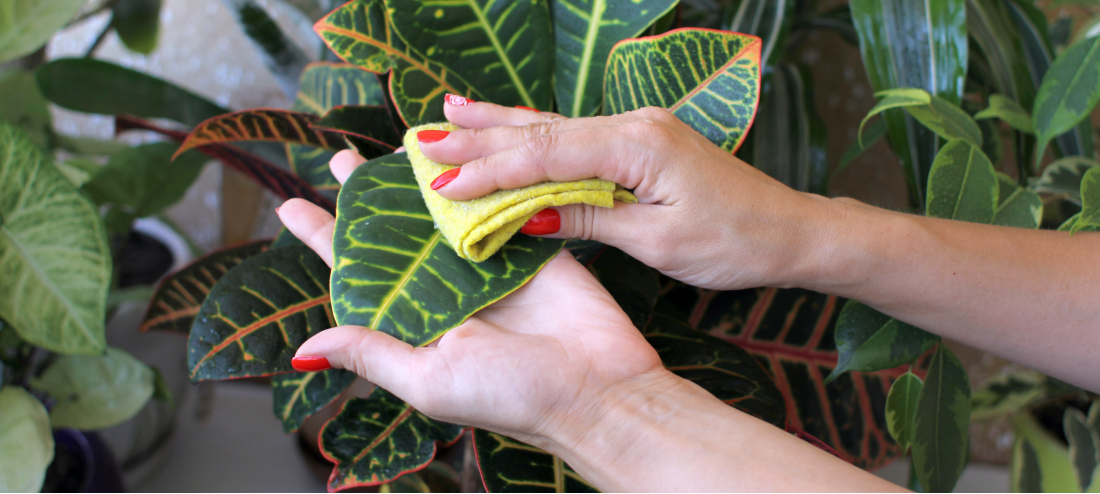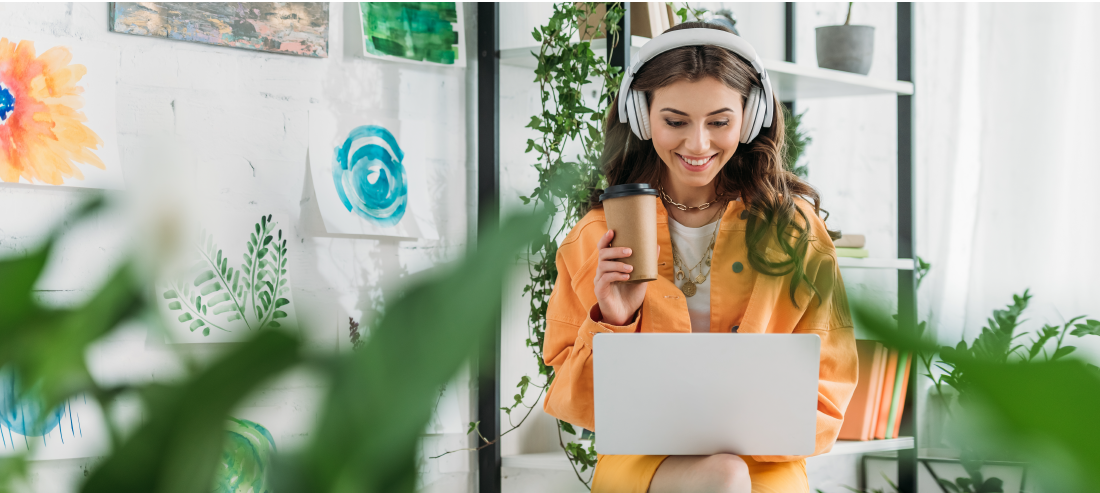

“I think green” – how to care for houseplants?
Houseplants can warm up any interior, creating a fantastic home aura. Many of us want to have a substantial floristic collection, and even a “jungle”, so trendy on social media now. Obstacles? Lack of knowledge of how to care for plants. Therefore, in this text, we share with you simple and universal life hacks. We want to inspire you to make the space around you greener.
The right spot is very important
The first mistake many people make (it's normal!) is when choosing the right place for the plant. That is why many plants do not live as long as they should, because they either dry out or wilt.
Plants, just like humans, have different needs and preferences. For example, the home ivy does not like sun-exposed areas because it is very susceptible to drying. The sansevieria will be much less "picky" because it can handle strong, weak and moderately bright locations well, whereas, species such as a spath (spathiphyllum) or fern prefer a humid environment, so they will work well, for example, in a bathroom (as long as there is a window in it, since every plant needs light).

When you see that something is wrong with the plant, try moving it elsewhere. If that doesn't work, pests or mould could be the cause of that problem.
Uninvited guests- we fight pests and mould
Do you see tiny spider webs on the stems, shoots and leaves? Surprisingly, they do not bear out the existence of domestic spiders, but spider mites. These pests can completely destroy your houseplant in no time. Luckily, you can fight them. Of course, we recommend natural methods, such as washing green surfaces with water and green soap. Homemade remedies, such as water with garlic or onions, can also work wonders. If that doesn't work, use chemical preparations.

Other "gatecrashers" are mould ovules. Unfortunately, it happens that they are already in the plant from scratch, so whenever you buy a plant in a shop, check if it is not contaminated in this way. In practice, this is often the case with plants purchased in supermarkets and DIY stores.
How to deal with mould once it occurs (e.g. due to too much humidity in the house)? An unusual method will be sprinkling the surface with powdered cinnamon. This process can be repeated every few days.
Remember about fertilising in the summer
Plants, just like us, need more energy during the summer. Therefore, they need to be supplied with additional ingredients from the outside, and for this purpose liquid fertilisers are used. They are used in the fixed proportion (e.g. 10 ml per liter of water) and are added to the watering can.

Remember not to be too generous, though, because too much fertiliser in the concentrate can cause the so-called physiological drought. The plant then does not take up water, even if it has a moist substrate, which can eventually lead to its death.
Replanting- when does the plant need more space?
Even the most beautiful pot and aril cannot be a permanent "place of residence" for a given plant. Root systems can be well- developed and keep expanding month after month, so you need to provide them with more space every now and then.

Immediately after buying, replant your plant to a larger substrate. And plan to replant all your plants on a regular basis once a year or less, depending on what species you are dealing with. For example, the monstera grows surprisingly fast and requires quite frequent "removals".
Watering the plants when we are away
Summer is a travel season. And yet, when you are away, plants do not take holidays at all and you need to take care of them as normal. What should you do when you are going away, for example, for 2 weeks?
Watering balls are a good solution. They are reusable, made of glass, so they can also be easily recycled. Just pour water into them, and then put them straight into the soil, with the narrow glass "spout" down. The plant will draw water from the ball itself, when needed. When choosing the models with the highest capacity, you can safely leave the plants for at least a week.
If, however, we ask our neighbors, friends or family to water the plants for us, electronic moisture sensors, available for example at IKEA, will be a great help. They look like electronic thermometers and are placed in the plant substrate. If the tip flashes blue, the plant needs to be watered. This is a great help for people who are not able to judge "more or less" whether the ground is too dry.
If you don't know your plant's needs, use modern technologies.
It turns out that new technologies also work well when it comes to our hobbies, which so far have been associated rather with the offline world.
The problem of many people is that they own plants they do not even know the names of. Consequently, they do not know what their specific needs are. Intuition is precious, but even more valuable will be proven knowledge to avoid floral mishaps.
For this purpose, applications such as PlantSnap or Blossom work well. Just take a photo and the app will automatically recognise which species you are dealing with. It will also tell you how to care for a specific plant. After some time, you will definitely distinguish between different types of indoor plants, and the Latin names will no longer be all Greek to you.
Why is it worth growing indoor plants?
It is worth doing for environmental reasons. Plants produce oxygen, which is beneficial not only for the dwellers of a given house or apartment, but for the entire human community.

Moreover, people who have daily contact with plants become more empathetic and sensitive to nature. Every day, they notice natural processes and see that various factors directly affect the condition of the plant. The same can therefore be transferred to global awareness: inappropriate conditions (e.g. due to climate change) cause the extinction of the flora.
Besides, maintaining your own "home jungle" is an enormous joy and pleasure. A valuable experience that teaches responsibility and mindfulness. And the holiday period is a great time to make the new hobby real.
Zobacz również:
Most frequently read

About company
Silbo – packaging production experts with 20 years of experience in the industry. We support environmental protection on many levels, for example with creating new, biocompostable standards in the field of packaging production. These are the main values on which the activity of SILBO is based: focusing on innovation, ecology and quality issues.


Received certificates















